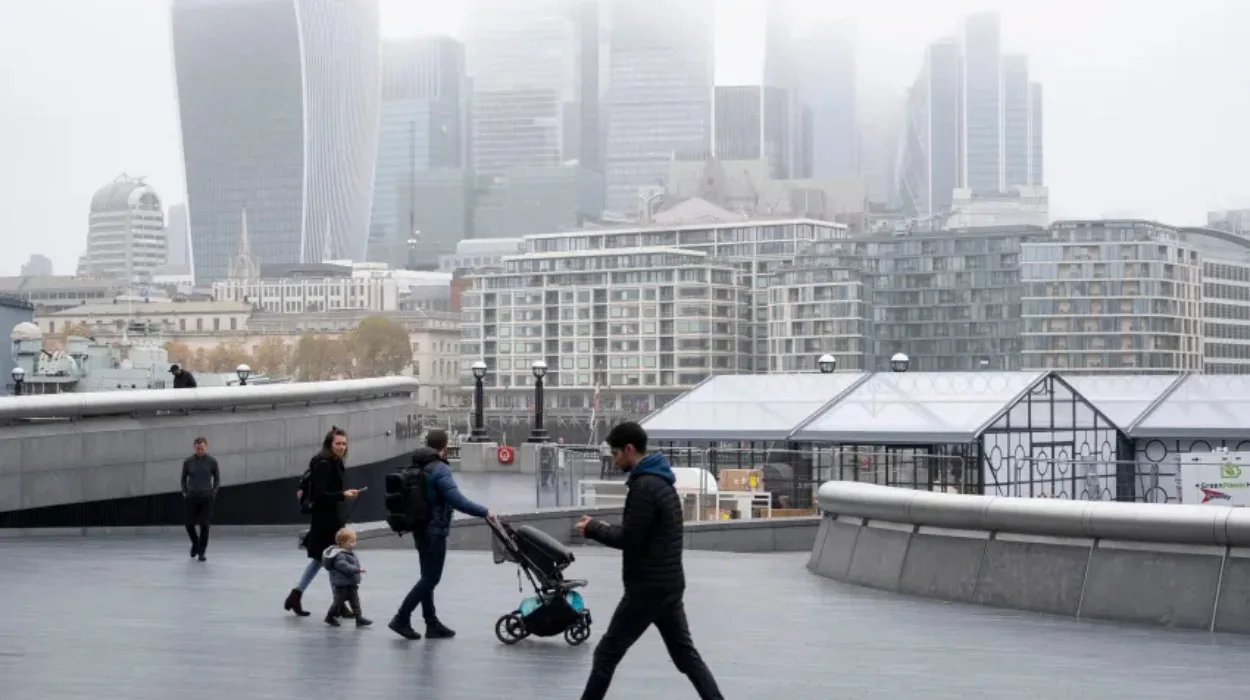London (Parliament Politics Magazine) – Rachel Reeves has reacted to the UK’s 0.1% economic contraction in October, calling the figures dissatisfying but she supported the government’s long-term economic growth policies.
The Office for National Statistics (ONS) revealed that the British economy has she acknowledged that the numbers are “disappointing,” but defended the government as having “put in place policies to deliver long-term economic growth.”
In her statement, she stated,
“We have put public finances back on a stable footing, capped the rate of corporation tax at the lowest level in the G7, established a £70bn National Wealth Fund to drive growth in our towns and cities, launched a 10-year infrastructure strategy, and are creating pension megafunds to boost investment in British businesses, infrastructure, and clean energy.”
While the Conservatives blamed Rachel for this economic contraction.
Shadow Chancellor Mel Stride stated,
“It is no wonder businesses are sounding the alarm.”
He added that Labour was only left the biggest growing economy in the G7, and this was only due to their decisions.
While speaking to the press, Rachel argued that the government’s recent initiatives on energy reforms, pensions, and the creation of a National Wealth Fund emphasized the government’s commitment to enhance economic growth and raise living standards.
As reported by Sky News, when asked about when we can expect the economy of the country to start growing again, she replied,
“Growth is the number one mission of this government – economic growth that results in families feeling better off with more money in their pockets – and we’re driving that economic growth.”
During a short media talk, while visiting small businesses in Essex, Tory party leader Kemi Badenoch stated she thinks the chancellor and the prime minister are making the wrong decisions.
She added,
“Their budget is crashing the economy, and they need to reverse this.”
A December survey revealed that individuals are feeling slightly more optimistic about their personal finances in the coming year.
While GfK’s survey found that people’s opinions on the economy haven’t changed since November, suggesting people are unsure about the future.
Sir Keir Starmer, after assuming the charge in July, already warned that the budget would be crushing after 14 years of Tory government. Capital Economics has reported that Britain’s GDP is now 0.1% lower than it was before Labour’s victory in the July election.
The Bank of England (BoE) has declined interest rates twice in 2024, though at 4.75%, the rate is still considered high compared to recent years. Chancellor Rachel presented the first budget under the new administration in July.
NBC New York states that Sir Starmer’s administration suggested a £40 billion ($50.5 billion) tax increase in the latest budget, which includes higher employer National Insurance contributions, an increase in capital gains tax, and the removal of winter fuel subsidies for pensioners.
The owner of the menswear shop Twisted Fabric in Hitchin, Rick Gaglio, stated that “people are still being cautious” and highlighted that prices remain relatively high. The previous week, Sir Keir introduced a “plan for change” and revealed new milestones to help the public gauge the government’s progress. For economic matters, he has promised to enhance real household disposable income per person.

